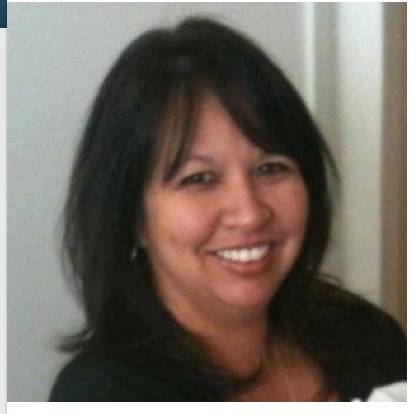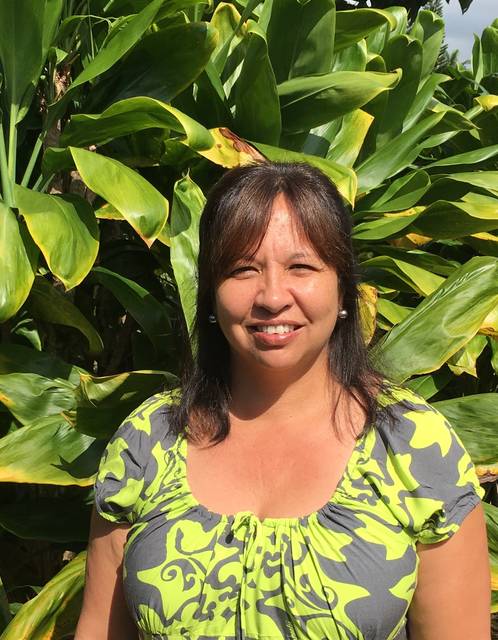KAPAA — Cyber-smarts can prevent computer viruses and keep confidential information private, especially in Hawaii.
“We need to catch up, because we’re a big tourist industry hub,” said Tracy Fu, account manager for SANS Institute, who helps cyber-security teams create training plans nationwide. “It’s really easy for your personal information to get stolen when you’re traveling. So it’s good for our local businesses to start making them aware of this.”
Fu, a business administration graduate of University of Hawaii West Oahu, provided informational talks at “Learn to be Cyber Safe” seminars presented at Hanapepe, Lihue, Kapaa and Princeville libraries last week.
Nearly 30 people attended the free programs hosted by the Hawaii State Public Library System in partnership with the State of Hawaii Department of Defense Office and Cyber Hui, a local nonprofit of cyber-security professionals who share their knowledge to inspire Hawaii’s youth.
“By listening to cyber-security professionals, keeping up-to-date on scams, and taking actionable and recommended steps toward cyber-security, you are proactively protecting your personal and financial data,” said Lani Kawahara, branch manager at Kapaa Public Library.
“If and when your data is hacked, you are more able to effectively respond,” she added.
Scam awareness, pass phrases, password managers, online safety for seniors and basic protection for
computers and devices were some of the topics covered in the
presentation.
“It’s important stuff,” Fu said. “For the seniors especially, they need to pay attention to the scams.”
She recommends avoiding clicking on unsecured sites or unsolicited links that may introduce malware, ransomware or other damaging viruses into your computer, and never opening suspicious emails.
“Whatever you get into your inbox, don’t just randomly click on it,” she said. “If you don’t know who sent it to you, delete it. Your bank will never ask you for information over email, just delete it, get rid of it.”
“Don’t check your emails on public Wi-Fi, at the airport, at the mall, at the library either,” she said. “It’s good to do research, but don’t look up personal information. Don’t go shopping on those public Wi-Fi connections, and don’t put your credit card information there. That’s the most unsafe place to do it.”
Tips for educators, leaders and parents were also offered by the Center For Cyber Safety and Education. Its programs provide in-classroom kits to teach children internet safety, as well as free resources for guardians, teens and college students found at www.SafeAndSecureOnline.org.
Parents were encouraged to talk to children about cyber bullying and teach them to recognize the signs and take action.
“Our main concern right now is to make sure everybody is aware,” Fu said. “Take a class when it comes to business and enterprises. People need to figure it out to keep their stuff secure. It’s real, so we just need to make sure our security practitioners here in Hawaii have the best training that they can.”
Free resources and handouts were provided by SANS Security Awareness. Its monthly newsletters (available at www.SecuringTheHuman.SANS.org) provide tips for shopping online safely, backup and recovery, securing mobile apps and other preventative practices.
“All of these are free resources we have out there, so they’re awesome,” said Fu. “They are recommended for seniors and especially for students.”
Along with six other states, Hawaii was selected to pilot a free cyber-security program developed by SANS for high school and college students. More than 300 Hawaii students participated in the CyberStart program with 22 of them each receiving $1,500 scholarships to cover the full cost of the CyberStart Essentials development program.
Eight Hawaii high school and college students participating in the program scored in the top 50 overall nationally. The state had the largest number of high scorers and scholarship winners on a per capita basis than any of the other states, Fu said.
“We just want to make sure our kids are aware of the professional opportunities and that there is training out there if they are interested,” she said.
“It’s basically for your own protection, to protect what you’ve worked for all your life,” she added. “We live in paradise, but at the same time you have to be careful. You wouldn’t leave your door unlocked in your house, and it’s the same thing with cyber-security.”








